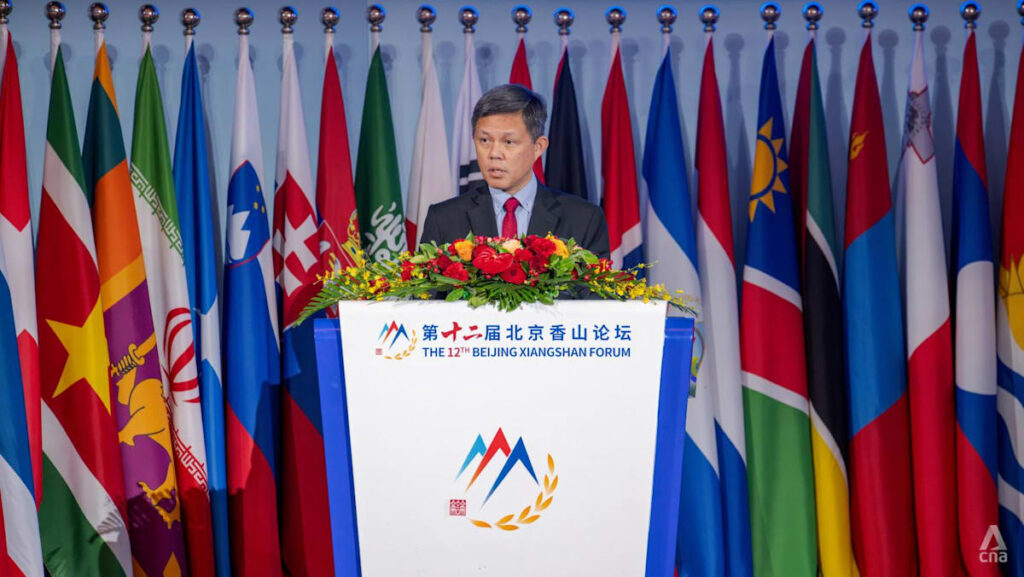“History has taught us that such conditions precipitate conflict. Economic upheavals in the 1930s across many countries created fertile ground for radical politics. This triggered a vicious downward spiral in economic policy and security stability, (which) can arguably be said to have contributed to World War II,” said Mr Chan.
“We once again risk falling into a similar vicious cycle,” Mr Chan said.
He stressed that amid a fraying global order, all countries, big or small, share the responsibility and agency to shape the world they want to see.
Mr Chan said the world order must be based on international law and equal rights, so every country has a fair chance to compete and contribute.
Without trust and dialogue, he warned, nations would assume the worst of one another.
“Under the law of the jungle, the mighty will do what they wish; and the weak will suffer what they must. We must avoid this at all costs,” he said.
EVERY COUNTRY BIG OR SMALL HAS A ROLE TO PLAY
Mr Chan stressed that between major powers, competition and cooperation are not mutually exclusive.
He cited Chinese President Xi Jinping’s call earlier this month for countries to avoid a zero-sum mindset, and United States Defence Secretary Pete Hegseth’s remarks at the Shangri-La Dialogue in May that Washington does not seek to “dominate, strangle, encircle, or provoke China”.
He said Mr Hegseth reiterated this in a video call with China’s Defence Minister Dong Jun last week, while the latter reportedly said both sides should keep an open attitude and maintain communication.
“Such statements from both superpowers give us confidence that the world is big enough for all countries to progress, prosper and learn together on an equal footing,” he said.
Mr Chan also stressed that small states, like Singapore, have agency.
“Singapore’s approach has been to continuously demonstrate our relevance and value as a partner,” he said.
He added that beyond being an economic partner and maintaining good relations with others, Singapore also seeks to be a reliable voice on the global stage by being consistent and principled in its views.
“We must never become a proxy or mouthpiece for others. Once a country becomes a proxy or mouthpiece, it loses its credibility, and therefore its value proposition,” he said.
Read the full article here

